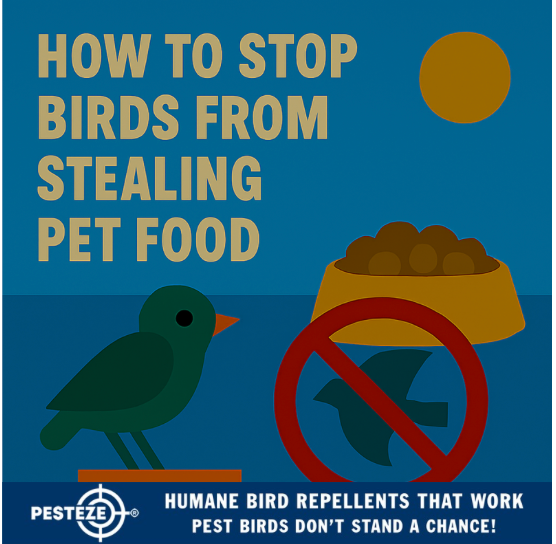HOW TO STOP BIRDS FROM STEALING PET FOOD

HOW TO STOP BIRDS FROM STEALING PET FOOD
SUMMARY
Bird theft of pet food creates significant challenges for pet owners, attracting unwanted wildlife and creating potential health risks in 2025.
FEATURES
- Pet Health Protection: Comprehensive strategies to prevent bird contamination of pet food.
- Feeding Safety: Methods to ensure pets can eat without interference from wild birds.
- Nutritional Preservation: Approaches to maintain pet food quality and prevent waste.
- Hygienic Management: Techniques to reduce bird-related contamination risks.
- Cost-Effective Solutions: Strategies to minimize food loss and potential health expenses.
GUIDE DESCRIPTION
Pet food represents an attractive food source for various bird species, creating complex challenges for pet owners seeking to maintain safe and hygienic feeding environments. The combination of easily accessible food sources and opportunistic bird behaviors can quickly lead to significant feeding challenges.
Birds are naturally drawn to pet food through multiple environmental factors. Open feeding areas, unprotected food containers, and consistent food availability create ideal conditions for bird interference. Understanding these attraction mechanisms becomes crucial for developing effective prevention strategies.
Technological innovations in 2025 provide sophisticated solutions for managing bird interactions with pet food. Advanced feeding protection systems, intelligent deterrent technologies, and targeted environmental modifications offer comprehensive protection strategies that balance pet nutrition with wildlife management.
Pet owners must develop comprehensive feeding protocols that address multiple environmental factors. Strategic feeding location selection, protective feeding stations, and intelligent deterrence techniques create comprehensive protection systems that minimize bird interference.
Professional veterinary and wildlife management experts recommend integrated approaches to pet food protection. Understanding local bird species, their behavioral patterns, and specific environmental characteristics becomes essential for successful implementation of bird deterrence strategies.
Legal and health considerations remain important in developing pet food protection approaches. Comprehensive strategies must balance pet nutrition, wildlife management, and potential health risks associated with bird interactions.
- Pukhraj Sharma


Comments 0